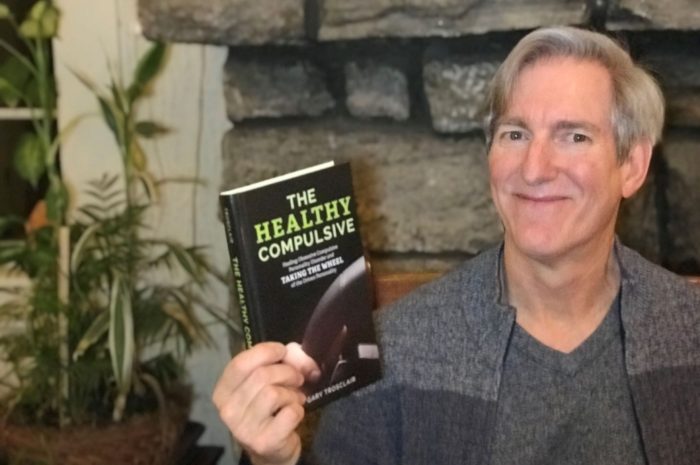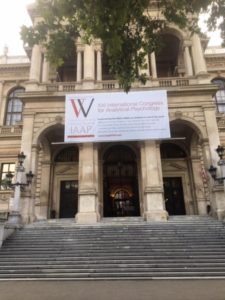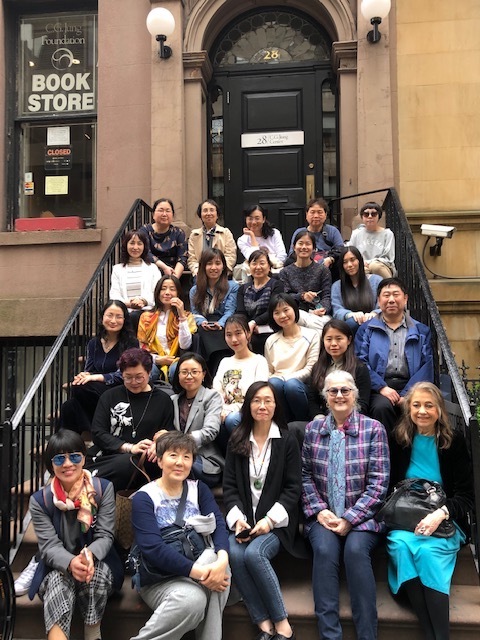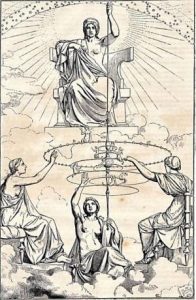In this post Alexandra Krithades, NYAAP member and President of the C.G. Jung Institute of New York, describes the role that she feels psychoanalysis needs to play in helping clients deal with the impact of dramatic social change, and the role that psychoanalysts themselves must play in this era. Her essay was originally posted at TherapyRoute.com.
——————————————————————————————————————–
November 8, 2016 was not simply an election in which Donald Trump won and Hillary Clinton lost.
It brought a paradigm shift to the United States and the world.
This election brought to power, in the most powerful nation of the world, a man who lies with facility, bullies others, mocks disabled people, is a racist to his core, is likely a serial sex offender, attacks the free press, and is financially corrupt.
One might ask: surely other American presidents have been liars, for example, Richard Nixon; and others as well must have committed acts of malfeasance in various forms. So why am I and many others so distressed by his election to the presidency?
However,
no other politician in recent modern history has systematically attacked the very bases of liberal democracy:
He has attacked the free press ruthlessly and relentlessly. He labels the press ‘fake news, the enemy of the people.’ After a particularly virulent attack on the press by Trump, UN experts David Kaye and Edison Lanza of the Inter-American Commission on Human Rights called the attacks ‘strategic’ and said they undermined press freedom and ‘verifiable facts’. Further Mr. Kaye and Mr. Lanza said the president’s assaults ‘ increase the risk of journalists being targeted with violence: and ‘are designed to undermine confidence in reporting.” (BBC News 8/2/18)
Without a free press, democracy dies.
Both the New York Times and the Washington Post keep logs of Trump’s lies that are published regularly. Dismayingly, his endless lies, scandals and crises do not seem to tarnish him with his base.
A new conspiracy theory-based organization “Qanon’ has sprung up supporting him and appearing at his rallies.
The Israeli newspaper Haaretz, in an article on 10/8/17 described how the use of the phrase ‘lying press’ ( “Lugenpresse”) was used by the Nazis and also during the 2014 ultra right anti-immigrant movement in Germany. It notes how this phrase has become a staple of Trump’s rhetoric. ( Haaretz, 10/8/17)
He has lowered the level of public discourse by destroying ordinary civility and respect in his interactions with other leaders in the world and with ordinary citizens. Without respectful dialogue, democracy is seriously weakened. Issues cannot be discussed; citizens cannot learn from each others’ perspective and disagree respectfully.
He tweets personal attacks and insults at individuals who have challenged him, or who represent different values, thus debasing and coarsening public discourse repeatedly.
Donald Trump insulted and degraded a gold star family who had lost a son in Afghanistan because they spoke against him at Hillary Clinton’s nomination convention. In doing so, he trampled on the most honoured aspect of public life: voluntary military service that results in death.
He has boasted about sexually assaulting women and getting away with it. Before the coarsening of public discourse that he has accelerated, a public apology on national television would have been required by anyone bearing office in the administration.
He has appointed to his cabinet a secretary of education who knows nothing about public education, and works to undermine public education by supporting charter schools, (privatized for-profit organizations); a secretary for Housing and Urban development who has no understanding or desire to improve public housing; a secretary to the EPA who is doing everything he can to undo the protections of the environment put into place over the last 40 years at a pivotal time for our increasingly fragile environment.
He has unilaterally walked away from the Paris Accords on climate change, and picked fights with the US’ neighbours, Canada and Mexico. He walked away unilaterally from the nuclear treaty with Iran. He has insulted Angela Merkel, the Chancellor of Germany, and Justin Trudeau, the prime minister of Canada. He has expressed hostile opinions about NATO, an institution that was born from the wreckage of World War II, that has served to bind liberal western democracies together in a mutual protection pact.
He has praised and befriended murderous dictators, like Putin, Duterte, and Kim Jung-un.
He has left unfilled countless diplomatic positions with the intent of weakening the institution of the US state department. As of spring 2018, 38 ambassadorial positions remained unfilled.
Without skilful, experienced diplomats, foreign policy becomes the tool of a demagogic leader who brags that he never reads. This further weakens the cause of democracy.
All of these actions and behaviours have created an environment of ‘post-truth’, where there is no longer an agreed upon reality in which public discourse can occur.
How has this deliberate assault on truth and the core values of liberal democracy affected those in psychoanalytic treatment and those who practice psychoanalysis?
I am a Jungian analyst practising in New York City. I remember the atmosphere on the streets and coffee shops and subways the morning after the election. There was a stunned mournful disbelieving silence. A collective depression was already beginning to set in.
The clients I saw that day were in profound dismay and disbelief. A sense of disorientation, betrayal, and loss was evident in all of them. This was not just a reaction to one’s preferred candidate losing.
The analytic candidates in a class I taught at a psychoanalytic institute that semester were tearful, hopeless, in despair.
It was for most, a painful, dawning perception of a paradigm shift of enormous proportion in our nation’s agreed upon sense of reality. We as a nation could no longer hold to a collective definition of ‘truth’ and ‘reality.’
For patients who come to therapy, their quest for truth, the need to understand who they really are, who their family was, what really happened in their childhood, as well as understanding more truthfully their current relationships and connection to the outer world, are essential to establishing a sense of wholeness and centeredness as they move beyond the suffering imposed on them by circumstances to which they had to adapt as powerless youngsters. Finding one’s own moral centre and values is a crucial dimension of deep therapeutic work.
The contrast with the behaviour and demeanour of the most recent presidents is stark. Barack Obama was a paragon of dignity and self-discipline, even in the face of extreme provocation, for example, when Trump insisted he was not a natural born American. George W. Bush was self-disciplined in public, was not a racist, did not scapegoat others, and held himself to an appropriate standard of behaviour.
To therapy patients, having our president use hate speech, endorse the hateful acts of others ( for example, when neo-Nazi/white supremacists marched in Charlottesville, resulting in the killing of one counter-demonstrator, President Trump said there were ‘fine people on both sides.’), scapegoat Mexicans, Muslims, refugees, disabled people, even US Senator John McCain for having been taken as a prisoner of war, created in this already emotionally vulnerable population an increased sense of vulnerability and bewilderment. Our nation’s moral tone was being set by a ‘reality’ TV star, with no apparent moral compass; not someone who had worked in government, law or public service.
Most psychotherapy patients have experienced marginalization in one form or another in their lives. Perhaps in their family of origin, not living up to expectations, or not conforming to the family’s collective values, or having a non-heteronormative sexuality, these individuals were now reliving a sense of marginalization in their nation. Being a member of an ethnic minority now meant being a target for the President’s hate and ridicule. Women, in particular, felt an increased sense of vulnerability, given the despicable sexism and degrading attitude of the president toward women.
For patients of Jewish background, the similarity of Trump’s statements to Nazi rhetoric was immediately obvious, and anxiety provoking.
His actions are antithetical not only to the values of liberal democracy but also to the values of any depth analysis and psychotherapy in general. We strive to understand and integrate our aggression, not project it and then act it out. We work to understand our urge to scapegoat others as a defence against feelings of inferiority. We strive to develop and/or increase our capacity for compassion for those who have injured us or frighten us, or who are powerless, by understanding as well the place in ourselves that feels powerless and unvalued. We work to understand and rein in our narcissistic tendencies, not enact them as Trump does.
Several patients sought reassurance from me that things will be alright; that it is not as bad as it seems. Others, though few, engaged in a willful, angry, almost contemptuous, ‘what’s all the fuss about?’ posture as a defence against the anxiety beneath their surface persona presentation of bravado and calm.
Some patients with a history of major depression decompensated and needed an increase or change of their medications. Many who previously did not suffer from insomnia, reported sleeping difficulties.
Patients with a multi-generational history of trauma expressed fear that the US would devolve into civil war. That Jews, or the wealthy, would be targeted by Trump’s ‘base’, i.e. his poorly educated, blue collar, white male supporters.
Most clinicians I spoke with noted an increase in somatic symptomatology, amongst their patients and themselves: digestive disturbances, headaches, back and neck pain, insomnia, nightmares. A New York City dermatologist reported to me an increase in patients who did not previously suffer from trichotillomania, pulling out their hair.
Trump appears frequently in the dreams of patients as a threat, for example, engaging in rapacious sex acts; destroying a beloved ancestral home with bulldozers; invading a home while others are asleep; setting fire to a nearby landscape that had been lovingly tended. Other disturbing images that have increased in peoples’ dreams since his election include wildfires destroying forests; the dreamer floating out at sea without a lifejacket, far from shore; buffalo herds trampling individuals on an open plain.
Jungian analysts strive to understand dream figures and imagery as aspects of the dreamer’s inner life that require understanding and integration. However, in these extraordinary times, that orientation is not sufficient. As an analyst, I have had to acknowledge the objective level of threat and disturbance that exists in the outer reality because of who Trump is and how he behaves.
Maintaining one’s objectivity as an analyst is more challenging now than ever. It is tempting to allow an analytic session to become a mutual sharing of dismay and outrage at the state of how things are unfolding.
There is a counter transferential longing to reassure the patient that things are not as bad as they experience them to be. Perhaps this reflects our own wish to reassure ourselves that things are not as bad as we perceive them to be. But it is not possible or appropriate to be reassuring. I have found myself challenged to strike a delicate balance between not being reassuring, nor stoking the fear or anxiety either while maintaining a reflective analytic stance.
I have found that I must work on my cultural assumptions as an American, for example, that the United States would never become a dictatorship: that our institutions are too strong; that racism in the US has been steadily on its way out since the civil rights movement of the 1960’s. To retreat to these comforting assumptions is to deny my own anxiety, and not face what that anxiety is trying to convey to me and to those with whom I work.
I am increasingly aware that as analysts in this ‘post-truth’ era, we may need to do additional inner work on ourselves, regarding the effect that external reality has upon us. We need to understand and acknowledge that while many of our fears are realistic and grounded in our accurate perceptions of external reality, we need to guard against magnifying those fears in our clients.
As individuals with a humanitarian orientation, I believe we must also become activists if we are not already. There is a worldwide swing to the far right, with xenophobia, racism, sexism on the rise everywhere.
We have a moral obligation to resist this destructive trend. We cannot be only in our consulting room. In a talk on 2/28/18 in New York City, Jessica Benjamin, an esteemed psychoanalyst who has made large contributions to the field, stated that in these times all therapists and psychoanalysts must become activists.
And so we must go on, despite these difficult times, actively affirming our democratic, humanitarian values, and also remaining committed to the work of psychoanalysis, which values the depth experience and dignity of every individual.
Alexandra Krithades, M.A., LP, is a Jungian analyst in private practice for over thirty-five years in Greenwich Village, New York, and Wilton, Connecticut. She is a graduate of the C.G. Jung Institute of New York, and the Graduate Faculty of the New School, in New York. She is currently President of the Board of the CG Jung Institute of New York and also teaches and supervises there.
She has taught at the C.G. Jung Foundation, the Temenos Institute in Connecticut, Vassar College, and Jung on the Hudson. Her subjects have included Creation Mythology, Greek Mythology, myth and symbol in dream interpretation, and basic concepts of Jung’s psychology. She presented a paper on the temenos of peer group supervision, together with Rosalind Winter, MSW, and John Gosling, M.D. at the National Conference for Jungian Analysts in Santa Monica, Ca. in January 2001. She has presented papers on Trauma and Transformation at the IAAP conference in Essex, UK, July 5, 2002, and at the Oresteia at SAAJA in Capetown, SA in 2009. She published a paper on a Death Foreshadowed in Quadrant July 2013.
Akrithades@gmail.com
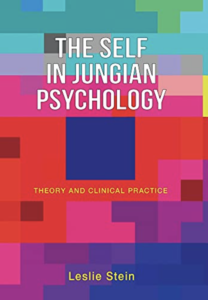 Theory and Clinical Practice.
Theory and Clinical Practice.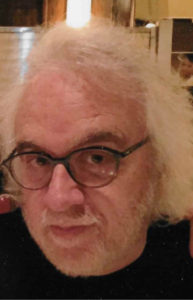


 in which we undertook the study of that obscure art in the midst of the pandemic, while this country, and most of the
in which we undertook the study of that obscure art in the midst of the pandemic, while this country, and most of the